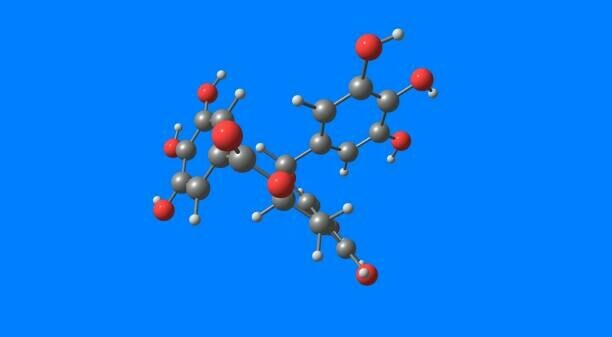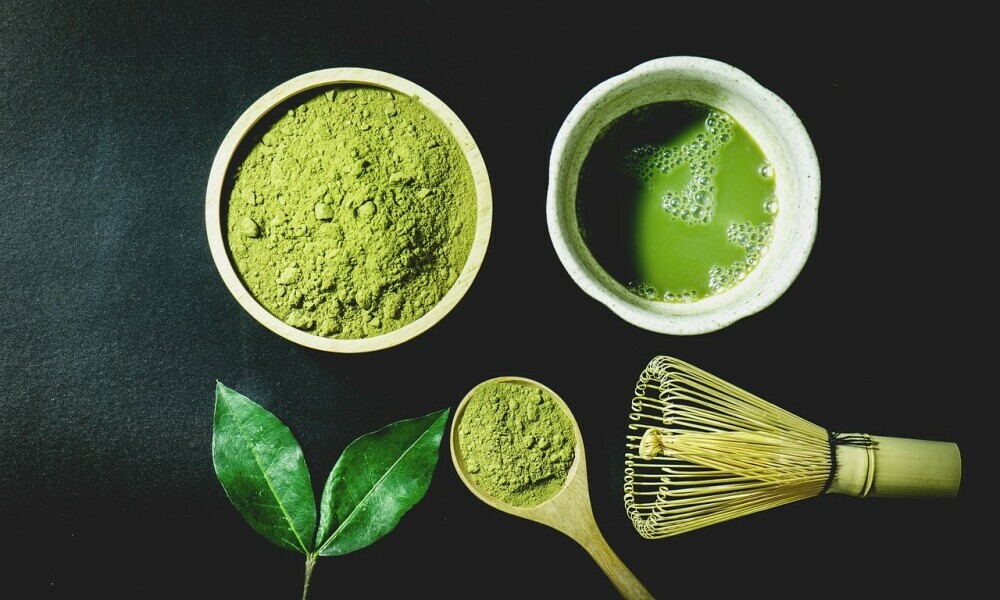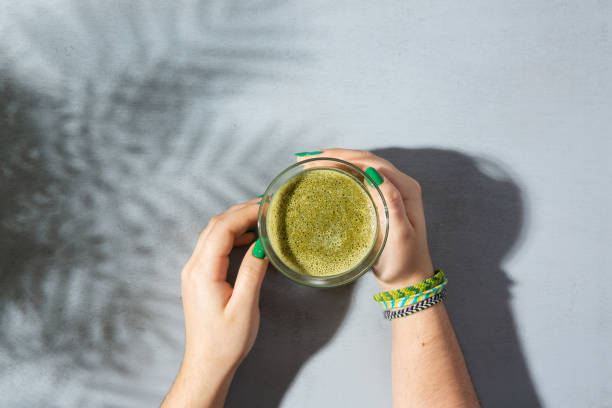Green Tea for Teenagers: A Healthy Habit or a Cause for Concern?
Overview of Green Tea’s Popularity Among Different Age Groups
Today I’d like to talk to you about an important topic “Is Drinking Green Tea Safe For Teenagers?” Green tea, a staple in many Asian cultures, has gained significant popularity worldwide. Its appeal spans various age groups, with teenagers being no exception. Green tea is popular among health enthusiasts due to its supposed health benefits.
Nutritional Benefits Versus Potential Risks for Teenage Consumption
Green tea is a beverage packed with antioxidants called catechins that help fight inflammation and protect cells from damage. Like coffee, it also contains caffeine, providing a gentle energy boost without causing jitters. “It is important to consider the possible risks teenagers may face.” Although caffeine is lower than coffee, it can still affect sleep patterns and concentration in some sensitive people. Moreover, excessive consumption of green tea may lead to stomach upset or iron deficiency.
Expert Opinions on the Optimal Age for Introducing Green Tea
Experts suggest that introducing green tea in moderation can be beneficial for teenagers. However, limiting consumption to one or two cups per day is recommended due to its caffeine content, and avoiding it close to bedtime. It’s also advised to serve it between meals rather than with food to prevent potential interference with iron absorption.
Balancing the Pros and Cons of Informed Parental Guidance
As parents, it’s crucial to balance the pros and cons of green tea consumption in teenagers. While it offers several health benefits, monitoring the intake to avoid potential side effects is essential. Encouraging a variety of beverages, including water, milk, and fruit juices, alongside green tea, can ensure a balanced diet. Remember that each teenager is unique, and what works for one might not work for another. Therefore, it is always best to consult a healthcare professional before making significant dietary changes.
Green tea can be a great healthy addition to a teenager’s diet when consumed in moderation. However, like anything else, it should be part of a balanced diet and healthy lifestyle.
The Nutritional Brew: What Makes Green Tea Special?

Unique Compounds in Green Tea: Caffeine, L-theanine, and EGCG
Green tea, a nutritional powerhouse, is packed with unique compounds contributing to its health benefits. The three key players are caffeine, L-theanine, and Epigallocatechin Gallate (EGCG). Caffeine is a common stimulant that can improve brain function and increase alertness. L-Theanine which is an amino acid is present in tea leaves. It can induce relaxation in the body without causing any drowsiness. EGCG, a type of catechin, is a natural antioxidant that assists in preventing cell damage and provides additional benefits.
How Caffeine and L-theanine Work Together for ‘Calm Alertness’
Combining caffeine and L-theanine in green tea creates a calm alertness state’ While caffeine stimulates the nervous system to make you more alert, L-theanine promotes relaxation and counters the restlessness often associated with caffeine intake. This synergistic effect results in improved brain function and enhanced mood without the jittery feelings or energy crashes linked with high-caffeine beverages.
The Relation Between Green Tea and Cognitive Benefits Like Enhanced Memory and Focus
Research suggests green tea can enhance cognitive functions like memory and attention. Green tea, a source of caffeine, can improve brain function, such as reaction time and working memory. In addition, it also contains L-theanine, which boosts the activity of the neurotransmitter GABA. GABA has anti-anxiety effects and increases alpha waves and dopamine production.
The Overall Impact of Green Tea on Teenage Health and Wellness
Green tea can be a great and beneficial addition to teenagers’ diets. Its antioxidants can help fight inflammation and protect against certain types of cancer. The ‘calm alertness’ provided by the caffeine and L-theanine combo can aid in concentration, especially during study sessions. However, considering its caffeine content, consuming it in moderation is essential. Leading a healthy lifestyle through maintaining a balanced diet and leading a healthy lifestyle is crucial to well-being.
Integrating Green Tea in Teen Diets: Safe Practices and Recommendations

Right Integration of Green Tea in School Lunches and Teen Diets
Incorporating green tea into teen diets can be a healthy choice, provided it’s done correctly. For instance, it can be included in school lunches as a refreshing beverage. However, it’s essential to ensure that it’s not replacing vital drinks like water or milk, which provide necessary hydration and nutrients.
Discussing Quantities and Frequency of Consumption
While green tea has numerous health benefits, moderation is key. Experts recommend one to two cups per day for teenagers. Excessive caffeine intake may cause sleep disruption or jitteriness. It’s advised to avoid drinking green tea before going to bed because it contains caffeine.
Exploring Organic Green Tea Options and Their Importance
Organic green tea is an excellent option for teens as it’s free from pesticides and artificial fertilizers, making it a healthier choice. It also tends to have a richer flavor compared to non-organic varieties. However, it’s essential to choose reputable brands to be sure of the quality and authenticity of the product.
Expert Suggestions for Making Green Tea a Part of a Balanced Diet
Experts suggest that green tea should be consumed as a part of a well-balanced diet that includes a variety of foods. It should not be used as a meal substitute or to skip meals. It’s crucial to remember that while green tea can aid in promoting a healthy lifestyle, it is not a panacea for all health issues. Maintaining good health and well-being requires regular exercise, a balanced diet, and sufficient rest. When incorporated correctly, green tea can be a beneficial supplement to a teenager’s diet. As with any dietary change, it’s always best to consult your doctor to ensure it suits the individual’s needs and lifestyle.
Matcha for the Young: Source Matters as Much as Substance

Understanding Matcha and Its Unique Properties
Matcha powder is a finely ground type of green tea used for centuries in traditional Japanese tea ceremonies. It is produced by using specially grown and processed tea leaves. Matcha is made by consuming the whole leaf, resulting in a more potent source of nutrients and antioxidants than regular green tea. The leaves are steeped in water in regular green tea and then removed.
Comparing Matcha with Standard Green Tea for Teenagers
While Matcha and standard green tea come from the same plant, Camellia sinensis, their cultivation and preparation methods result in different nutritional profiles. Due to its concentrated nature, Matcha contains higher levels of caffeine and antioxidants than standard green tea. Matcha can offer teenagers an enduring energy lift without the aftermath of a crash typically associated with coffee or energy drinks. However, the higher caffeine content should also be consumed in moderation.
The Importance of Sourcing High-Quality Matcha for Youth
When it comes to Matcha, quality matters. High-quality Matcha is characterized by a vibrant green color and a sweet, vegetal taste. Lower-quality Matcha, on the other hand, may appear yellowish and taste bitter. It’s crucial to source Matcha from reputable suppliers to ensure it’s free from contaminants and additives that could be harmful, especially to teenagers’ developing bodies.
What Age is Appropriate for Matcha? Insights from Health Experts
Health experts agree that teenagers can safely consume Matcha, given its natural origin and health benefits. However, due to its caffeine content, it’s recommended for those aged 12 and above. Consumption should be limited to avoid potential side effects like jitteriness or disrupted sleep, as with any caffeinated beverage.
Matcha can be a great and very beneficial addition to a teenager’s diet, offering a unique blend of taste and nutrition. However, to reap its full benefits, sourcing high-quality Matcha and consuming it responsibly is essential.
Caffeine in Focus: Assessing Its Impact on Kids and Teenagers

Breaking Down Caffeine: How Does It Affect Young Bodies?
Caffeine, a natural stimulant in various beverages, stimulates the central nervous system. Due to their developing physiology, the effects can be more pronounced in young bodies. It can increase alertness and reduce fatigue, but excessive intake can cause restlessness, headaches, and disrupted sleep patterns.
Research Insights: Impact of Caffeine on Children and Teenagers
Recent research indicates that caffeine can affect children and teenagers differently than adults. While it can improve attention span, it may also increase heart rate and blood pressure. Some research suggests that excessive caffeine consumption among adolescents may increase their risk of developing anxiety and sleep disorders. Therefore, monitoring and limiting caffeine intake in this age group is crucial.
Comparing Caffeine in Green Tea to Sodas and Energy Drinks
Green tea contains significantly less caffeine than sodas and energy drinks, making it a healthier teenage choice. A cup of green tea has approximately 25-45mg of caffeine, while sodas and energy drinks can contain anywhere from 30-150mg. Moreover, green tea offers additional health benefits from antioxidants, absent in most sodas and energy drinks.
Guidelines for Caffeine Consumption by Age and Weight
Health experts recommend that children under 12 avoid caffeine. The suggested limit for teenagers is no more than 100mg per day, equivalent to about two cups of green tea. Individual tolerance to caffeine can vary based on factors like age, weight, and overall health. Therefore, parents and caregivers should observe how their teen reacts to caffeine and adjust accordingly.
While caffeine can offer some benefits, it’s essential to understand its potential impacts on children and teenagers. By choosing healthier sources like green tea and monitoring intake, we can ensure that our children enjoy these beverages safely.
Herbal and Green Tea for the Younger Palate: Health Benefits and Precautions

Herbal vs Green Tea: Health Implications for Children and Teenagers
Herbal and green teas, steeped in tradition and health benefits, offer unique advantages for the younger demographic. Green tea, rich in antioxidants, can boost immunity and cognitive function. On the other hand, herbal teas offer a wide range of benefits depending on the herbs used. Chamomile can promote calmness, while peppermint may aid digestion. However, monitoring caffeine content, particularly in green tea, is essential to prevent potential sleep disruption.
Recognizing Safe Herbal Teas for the Younger Age Demographic
While herbal teas can be a healthy addition to a child’s diet, choosing safe options is crucial. Teas made from mild herbs like chamomile, rooibos, and peppermint are generally safe for children. However, some herbs may not be suitable for younger bodies. Always opt for reputable brands that ensure their products are free from harmful substances.
How Green Tea Consumption Can Support Cold and Flu Prevention, Dental Health, and Digestion
Green tea has several numerous health benefits that can help improve overall well-being. Its antioxidants can strengthen the immune system, potentially helping to ward off colds and flu. The natural fluoride and tannins in green tea can kill bacteria in the mouth, promoting dental health. Moreover, green tea can aid digestion and help maintain a healthy gut.
Pros and Cons of Introducing Tea Rituals at a Young Age
Introducing tea rituals at a young age can foster a sense of tradition and encourage healthier beverage choices. It can also be a comforting routine, promoting relaxation and mindfulness. However, it is important to ensure these rituals don’t lead to excessive caffeine intake. Also, tea should not replace essential drinks like water and milk in a child’s diet.
Herbal and green teas can benefit children and teenagers when chosen wisely and consumed in moderation. As always, it’s best to consult a healthcare professional before introducing significant dietary changes.
Answering Popular Concerns: Green Tea FAQs for Parents and Guardians

Is Green Tea Safe for My Child?
Green tea is generally safe for children in moderation. It’s a natural beverage that offers several health benefits, including a rich source of antioxidants. However, it does contain caffeine, which can affect sleep patterns and concentration in sensitive individuals. Therefore, it is advisable to limit its consumption and avoid giving it to children close to bedtime.
How Much Green Tea is Too Much for a Teenager?
While green tea is healthier than other caffeinated beverages, moderation is key. Experts generally recommend that teenagers consume no more than 100mg of caffeine per day, equivalent to about two cups of green tea. Consuming more than this can lead to restlessness, headaches, and other side effects.
Can Green Tea Interact with Medications or Conditions?
Yes, green tea can interact with certain medications and medical conditions. For instance, its caffeine content can interfere with sleep medications and certain heart medications. Also, green tea can reduce iron absorption from food, which could concern individuals with iron deficiency. Therefore, it’s always best to consult a healthcare professional before introducing green tea to your child’s diet, especially if they are on medication or have a medical condition.
Expert Advice on Navigating Conflicting Information About Green Tea
With so much information available, it can be challenging to determine what’s accurate and what’s not regarding green tea. Experts advise parents to rely on reputable health and nutrition sources and consult healthcare professionals for personalized advice. It is essential to remember that while green tea can have health benefits, it should not replace a well-balanced diet and regular exercise. If consumed in moderation, green tea can benefit your child’s health. However, it is essential to get the advice of a healthcare provider before introducing any dietary changes to make sure they are appropriate for your child’s unique needs and lifestyle.
Cultural Perspectives: Green Tea as a Staple in Young Diets Globally

How Cultural Practices Shape Tea Consumption Among the Young, e.g., Japan’s Access to Green Tea
Tea is a way of life in many cultures, not just a drink. In Japan, for instance, green tea is a staple consumed by people of all ages, including children and teenagers. Drinking green tea is deeply rooted in their daily routines and traditions, promoting a sense of calm and mindfulness. This cultural acceptance has made green tea readily accessible and commonly consumed among the young.
Learning from Global Models Where Green Tea is Part of Child and Teen Diets
Looking globally, we find several models where green tea is integrated into the diets of children and teenagers. In China, for example, green tea is often served with meals and used as a base for various traditional medicines. Similarly, green tea with mint is a common refreshment offered to guests of all ages in Morocco. These practices highlight the acceptance and normalization of green tea consumption in young diets, providing a model for other cultures to consider.
Differences in Tea Consumption Patterns and Their Implications on Health Across Cultures
Tea consumption patterns vary significantly across cultures, influenced by tradition, availability, and perceived health benefits. In Western countries, where coffee is more prevalent, green tea consumption is often associated with health consciousness and is less common among children and teenagers. However, as awareness of its health benefits grows, so does its popularity among the younger demographic.
These cultural differences in tea consumption have implications for health outcomes. Regular consumption of green tea from a young age can contribute to a healthy lifestyle thanks to its antioxidant properties. However, it’s crucial to balance this with caffeine’s caffeine’s caffeine’s effects and ensure a varied and balanced diet.
As green tea holds a significant place in many cultures worldwide, its integration into the diets of children and teenagers, as seen in countries like Japan and China, provides interesting insights for parents and guardians elsewhere. It is very important to maintain moderation and balance while introducing new food items into the diets of young individuals. This approach will ensure that their dietary habits remain healthy and well-rounded.
The Final Verdict: Should Green Tea Be in Your Teenager’s Mug?
Weighing the Evidence on the Safety and Benefits of Green Tea for Teenagers
With its rich antioxidant content and potential cognitive benefits, green tea has been a topic of interest among parents and health professionals alike. While it offers several health benefits, it’s essential to consider its caffeine content, which can affect sleep patterns and concentration in sensitive individuals. Therefore, the safety and benefits of green tea for teenagers need to be weighed carefully.
Making Informed Decisions Based on Current Research and Expert Guidance
Current research suggests that green tea can be a healthy addition to a teenager’s diet when consumed in moderation. However, like any dietary change, you must consult a healthcare professional before introducing green tea to your teenager’s diet. They can consider your teenager’s needs and lifestyle to offer customized advice.
Adopting a Holistic Approach to Beverage Choices in Teen Nutrition
A holistic approach to beverage choices in teen nutrition is critical. Although green tea can provide health benefits, it should not be considered a substitute for a balanced and diverse diet. Your diet should consist of various foods, including water, milk, and fruit juices. Additionally, regular exercise is very imperative for maintaining good health and well-being.
Encouraging Responsible Enjoyment of Green Tea and Fostering a Culture of Mindfulness in Consumption
Introducing green tea to your teenager’s diet can also be an opportunity to foster a culture of mindfulness in consumption. Encourage them to enjoy the tea’s taste and aroma and be aware of how much they’re consuming. This can help individuals make mindful and informed decisions about their food and drink choices, promoting a healthy relationship with food.
In conclusion, green tea can be a beneficial addition to your teenager’s mug, provided it’s consumed responsibly and as part of a balanced diet. As always advised, consulting with a healthcare professional for personalized advice is the best practice.
I would like to receive your comments down below, in case of any.


Hi there
Your content provides a comprehensive and insightful exploration of an important topic. It adeptly navigates through the potential benefits and concerns associated with green tea consumption among teenagers, providing valuable information for both parents and adolescents.
I like how you not only shed light on the potential health benefits of green tea but also addresses any potential risks or considerations, empowering readers to make informed decisions.
Overall, the article is an excellent resource for anyone seeking clarity on this subject, presented in a clear and accessible manner.
Thanks again
Hi Troy,
I appreciate your thoughtful comment. It’s really great to know that you found the article on the safety of green tea for teenagers to be thorough and insightful.
I always strive to offer thoroughly researched and impartial information to help readers make informed choices, so I appreciate your input.
I’m pleased you recognized the effort to cover both the positive and potential drawbacks of consuming green tea. Providing clear and accessible information to empower parents and teenagers is my priority, and I’m thrilled that the article accomplished that for you.
Thank you once again for your kind words and support. It really means a lot to me.
Warm regards,
Sara
In addition to providing important information about Green tea for teenagers, this post offers a lot of information about Green tea in general. My wife bought a pack of Green tea some months ago when she wanted us to improve our diet and health consciousness and diet, but I only remembered that after I began to read this post. Neither of us has touched it.
This post made me make two decisions. First, I will get my wife and I to implement a routine for taking Green tea regularly in moderation. The second is that, although we like to share healthy treats with our children – who are both below 12 years old – our oldest son who is 10 years old will have to wait a few years before he can start to enjoy the immense benefits of Green tea. Thank you for this informative post.
Hi Oluseyi,
I really do appreciate your willingness to share your insights and personal journey with green tea. It’s lovely to hear that the article has motivated you to make these two essential choices. Creating a habit of enjoying green tea in moderation is a positive step toward enhancing your health and being more mindful of your diet.
It’s commendable that you are also considering your children’s specific needs. Your decision to wait a few years before introducing green tea to your eldest son demonstrates careful consideration and aligns well with the information provided in the article.
I’m pleased that you found the post to be informative and beneficial. Your input is genuinely valued, and I wish you and your family all the best as you pursue improved health.
Best regards,
Sara
Drinking green tea in moderation is generally safe for teenagers. It contains antioxidants and nutrients beneficial for health. However, green tea also contains caffeine, which can affect sleep and cause jitteriness or anxiety in excessive amounts. Teenagers should limit their intake to 1-2 cups per day and avoid consuming concentrated green tea supplements. Additionally, those with caffeine sensitivity or certain health conditions should consult a healthcare professional before regular consumption. Overall, enjoying green tea as part of a balanced diet can be safe and provide health benefits for teenagers when consumed responsibly.
Hi Adalgwe,
Thank you for your insightful input. You’re absolutely correct that maintaining balance is crucial when it comes to teenagers consuming green tea. The beneficial antioxidants and nutrients it provides can be a valuable complement to a nutritious diet. Nevertheless, as you pointed out, the presence of caffeine may lead to potential side effects such as sleep disturbances or restlessness, particularly in higher doses.
It’s excellent advice to restrict intake to 1-2 cups per day and to steer clear of potent supplements. If teenagers have a sensitivity to caffeine or particular health issues, they should consult a healthcare provider for guidance.
Green tea can undoubtedly be a positive component of a teenager’s dietary regimen when consumed responsibly. Once again, thank you for sharing your perspectives.
Thank you, Sara Tadros, for this insightful discussion on the safety of green tea for teenagers. Your comprehensive overview covered every aspect, from the nutritional benefits to the potential risks, providing a well-rounded perspective for parents and teenagers alike.
I appreciate how you emphasized moderation and informed decision-making when it comes to integrating green tea into a teenager’s diet. It’s crucial to strike a balance between enjoying the health benefits of green tea and being mindful of its caffeine content, especially considering its potential impact on sleep patterns and concentration.
Your incorporation of expert opinions and research findings added credibility to the discussion, highlighting the importance of consulting healthcare professionals before making dietary changes. It’s reassuring to see such a responsible approach advocated for the well-being of teenagers.
Furthermore, I found the exploration of cultural perspectives on green tea consumption among the young particularly fascinating. Understanding how different cultures incorporate green tea into their diets provides valuable insights for promoting healthy beverage choices globally.
Overall, this article serves as an excellent resource for parents navigating the question of whether green tea is suitable for their teenagers. By fostering a culture of mindfulness in consumption and encouraging responsible enjoyment, we can empower teenagers to make informed decisions about their dietary habits.
Once again, thank you for shedding light on this important topic with clarity and depth. I look forward to reading more informative content from you in the future!
Hi Adnan,
I immensely appreciate your thoughtful and encouraging comment. It’s great to know that you found the article insightful and comprehensive.
It’s genuinely heartwarming to learn that the emphasis on moderation and informed decision-making struck a chord with you. Striking that balance is vital, especially regarding teenagers’ dietary habits. Considering the potential impact of caffeine on sleep patterns and concentration is crucial, and I’m pleased that this was effectively highlighted.
Including expert opinions and research findings is crucial to providing trustworthy information, and I’m happy that this contributed significantly to the discussion. Prioritizing consultation with healthcare professionals before making any dietary changes is a responsible approach, and it’s fantastic to see this message valued.
The cultural aspects of green tea consumption are genuinely intriguing. They provide valuable insights into how different societies incorporate this healthy beverage into their diets. Promoting healthy choices globally is something we can all benefit from.
Again, I am writing to express my gratitude for your kind words and for sharing your thoughts. Your feedback is precious, and I’m excited to bring you more informative content in the future. Please let me know if you have any specific topics you’d like to see covered.
As a mom with pre-teens, I found this article on the safety of green tea for teenagers incredibly insightful. It’s reassuring to know that green tea, in moderation, can offer health benefits like antioxidants and improved cognitive function. However, I’m also cautious about its caffeine content and the potential for sleep disruption or iron absorption issues. The advice to limit green tea to one or two cups a day and avoid consumption close to bedtime seems very practical. It’s helpful to have expert guidance to balance the benefits and risks when considering green tea for my kids.
Hi Ashley,
Thank you for sharing your experience and thoughts.
It seems like you’re thoughtfully approaching green tea into your pre-teen’s diet. Balancing the benefits and potential concerns is essential, especially with younger individuals.
Have you observed any specific changes in their health or behavior since they began drinking green tea? Additionally, have you discovered other healthy beverages or habits that benefit them?
Your insights as a parent are precious, and engaging in this discussion to better understand the practical implications for everyday family life is lovely.